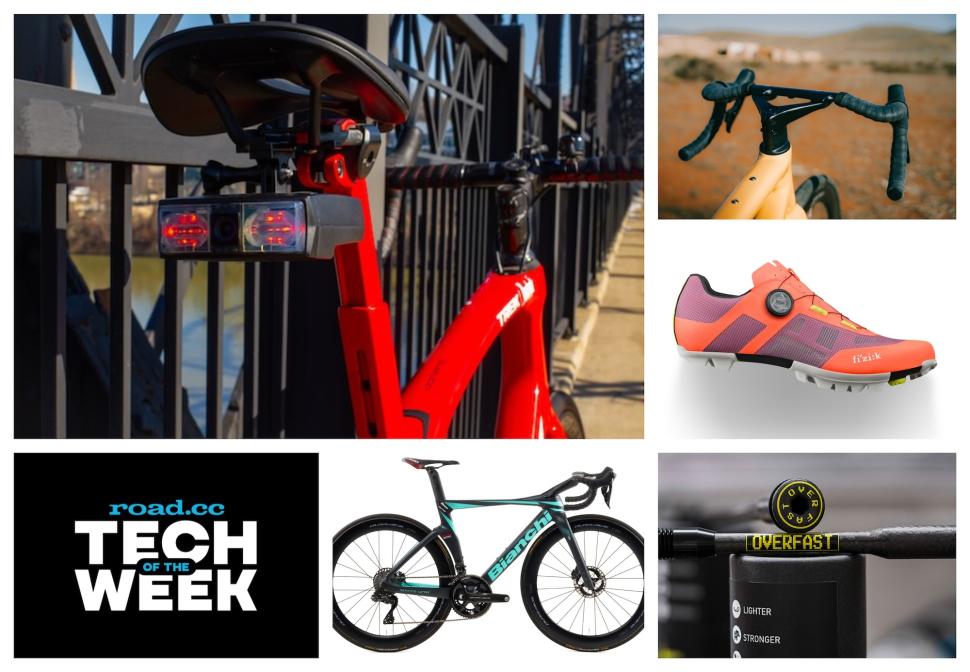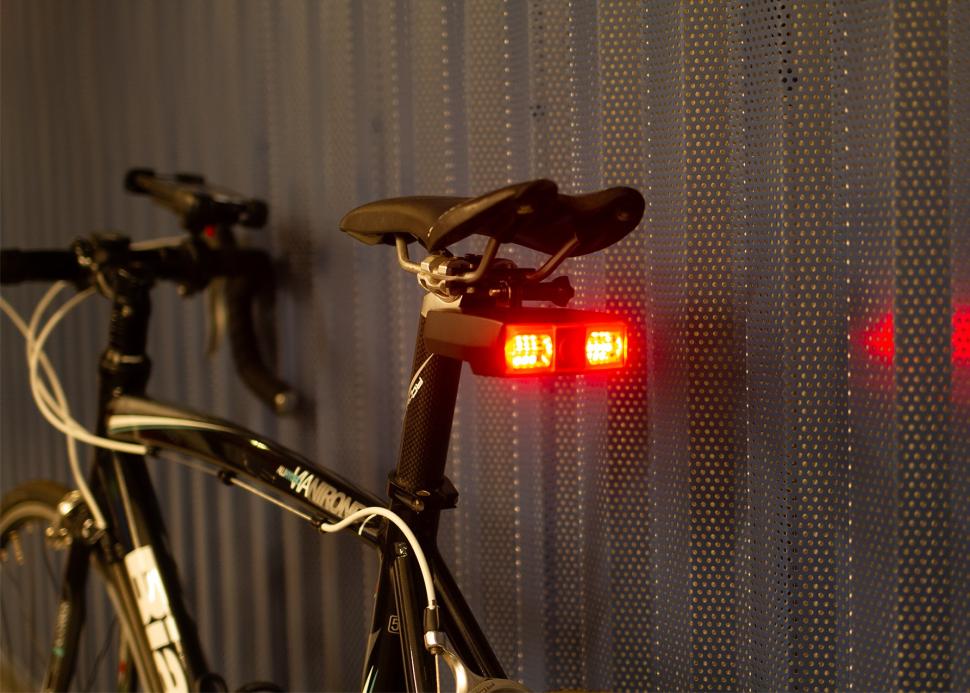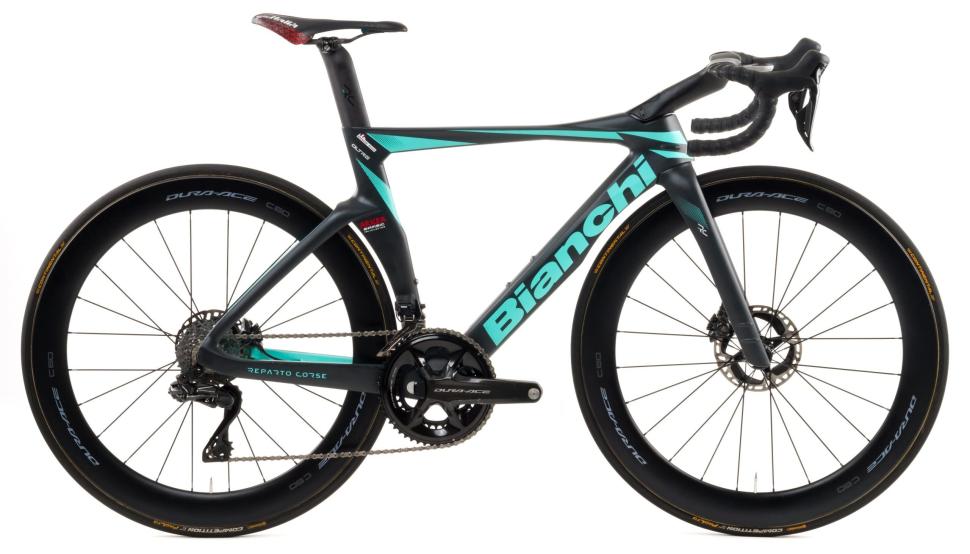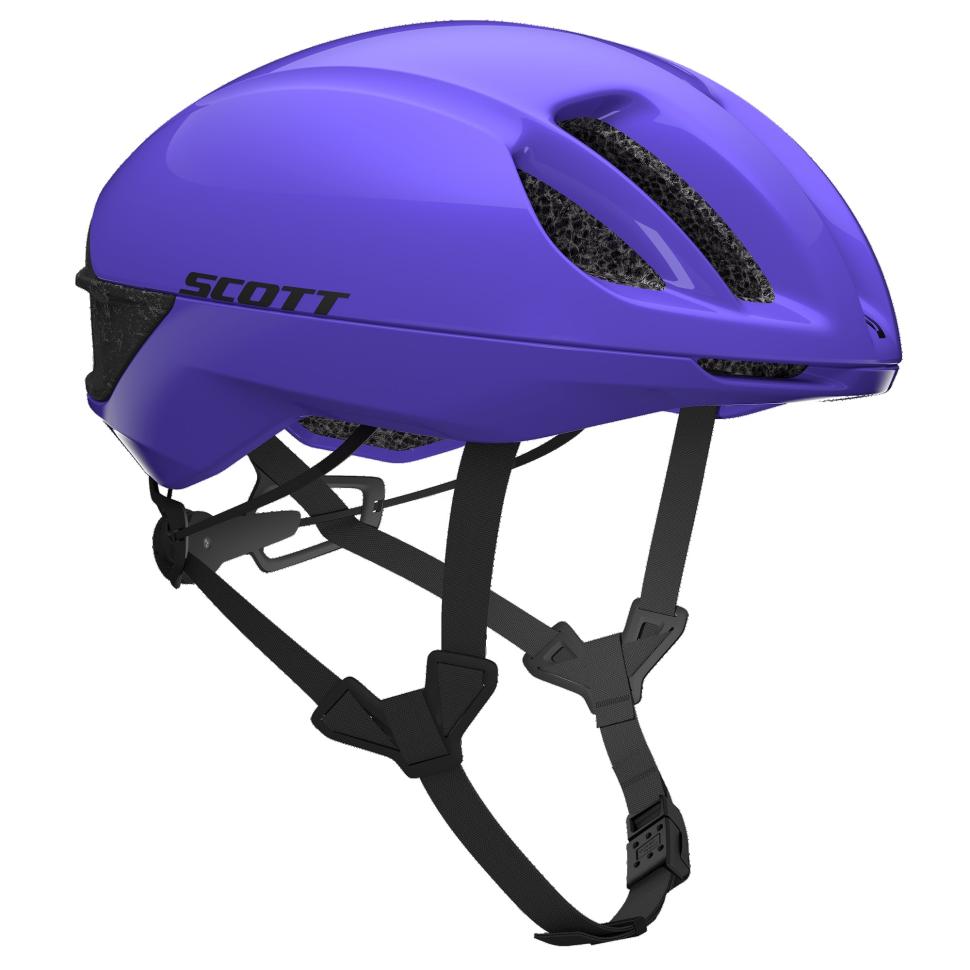- News
- Reviews
- Bikes
- Accessories
- Accessories - misc
- Computer mounts
- Bags
- Bar ends
- Bike bags & cases
- Bottle cages
- Bottles
- Cameras
- Car racks
- Child seats
- Computers
- Glasses
- GPS units
- Helmets
- Lights - front
- Lights - rear
- Lights - sets
- Locks
- Mirrors
- Mudguards
- Racks
- Pumps & CO2 inflators
- Puncture kits
- Reflectives
- Smart watches
- Stands and racks
- Trailers
- Clothing
- Components
- Bar tape & grips
- Bottom brackets
- Brake & gear cables
- Brake & STI levers
- Brake pads & spares
- Brakes
- Cassettes & freewheels
- Chains
- Chainsets & chainrings
- Derailleurs - front
- Derailleurs - rear
- Forks
- Gear levers & shifters
- Groupsets
- Handlebars & extensions
- Headsets
- Hubs
- Inner tubes
- Pedals
- Quick releases & skewers
- Saddles
- Seatposts
- Stems
- Wheels
- Tyres
- Health, fitness and nutrition
- Tools and workshop
- Miscellaneous
- Cross country mountain bikes
- Tubeless valves
- Buyers Guides
- Features
- Forum
- Recommends
- Podcast
TECH NEWS
 2024 March 16 Tech of the Week (1)
2024 March 16 Tech of the Week (1)AI light vs bad drivers: meet the new device designed to keep you safe on the road + “the ultimate cockpit” and more tech news from Bianchi, Santini, Fizik, Silca, Vision…
We have loads of shiny new bike tech to tell you about this week, including classics clothing from Santini, carbon-fibre thru-axles that weigh just 30g a pair, and cool bars from Vision and Fara, but we’re starting with an AI-powered light/camera that’s designed to keep you safe from bad drivers
AI light vs bad drivers: meet the new device designed to keep you safe on the road
US company Velo AI has introduced an artificial intelligence-powered bike light/camera system called Copilot that’s designed to keep you safer while you’re riding on the road.
You might think you've heard enough about AI over the past few months, but if it promises to help save us from bad drivers, we’re all ears.
“Velo AI is a robotics company that is making safety devices for personal mobility, specifically a safety device called Copilot,” says Velo AI CEO Clark Haynes.
“It’s a bike light, it’s a camera, but most importantly, it’s an AI device that helps alert bicyclists if they might be in dangerous situations. You begin to get this sixth sense of knowing what's going on before it happens.
“The modern automobile industry has applied a lot of really advanced tech to today's cars. We wanted to flip the script and bring that tech and focus it on making the experience safer for bicyclists.”
Okay, you’ve got our attention. How does it work?
Copilot watches the road behind you and, according to Velo AI, “can understand when a vehicle safely negotiates past a cyclist or identify an aggressive or distracted driver approaching dangerously”.
Alison Treaster, Chief of Staff at Velo AI, says, “40% of crashes and fatalities happen from being hit from behind. The more we can make drivers aware and the more attention we can draw to the cyclist, hopefully both parties are more prepared to avoid any kind of crash.”
“Cyclists will receive audible cues when a car is approaching and [Copilot] can also pair with your phone so you can pull up the companion app that will show you a visual representation of what's happening behind you. Honestly, Velo AI is looking to make streets safer for everyone.”
Copilot is designed to identify moving objects – cars, bikes, pedestrians, and so on – and tell the difference between something coming straight at you and something moving parallel on a separate road or passing you safely.
As well as giving you a warning about what’s happening behind, Copilot can alert drivers with its lights. It also captures ride footage (in 1080p) that could be valuable evidence if an incident occurs.
The Velo AI team hopes that data from Copilots can eventually feed into road safety improvements, aggregating data from different users for potential infrastructure upgrades.
Velo AI says that the Copilot is designed for all types of cyclists although, at least in its current form, it looks like it’s most suitable for commuters and other urban riders.
Of products already out there, the closest we can think of is Garmin’s Varia radar tail light (£169.99) which pairs with a Garmin Edge bike computer or a compatible smartphone to alert you of vehicles approaching from behind. The Varia RTL515 is designed to provide visual and audible alerts for vehicles approaching from up to 140 metres away, according to Garmin. The Bryton Gardia R300L that we reviewed does a similar job for £119.99.
Both the Garmin Varia and the Bryton Gardia change their flashing light patterns when traffic approaches, but they don’t offer risk-based alerts or custom alerts for different vehicles.
The Copilot measures 92 x 95 x 35mm and weighs 330g. It’s USB-C rechargeable and is priced at $399 (which converts to about £313).
Velo AI currently ships to the US only. We’ve enquired about international distribution.
Velo AI is shipping only to US addresses at the moment, but it is planning a revision to the Copilot that will be available internationally.
Fara Cycling introduces "the ultimate cockpit"
Fara Cycling says its new Modular carbon handlebar and stem combination could be the "ultimate cockpit". Despite looking like a one-piece setup at first glance, the Modular Cockpit actually comprises two parts, and the stem reach can be adjusted by 10mm.
The shape of the new bar is unique (although it does bear some resemblance to Canyon's Double Drop Bar that the new Grail has) and is "inspired by the body’s natural hand position". Fara says the overall shape gives you a more efficient “elbows-in” riding position and improves blood circulation to the hands.
Designed with enhanced ergonomics and adaptability in mind, the cockpit comes with a whole host of sweeps and tilts. You get an 8° canting on the drops, paired with a 3° flare, which means the bar is 3cm wider if measured centre-to-centre at the drops, compared to the hoods.
On the hoods, you get a 6° upward tilt at the lever area, a gentle backsweep and also raised corner areas that, Fara says, decrease hand fatigue when on the tops.
There are four width options: 37cm (narrow), 40cm (race), 42cm (regular) and 44cm (wide), and the stem lengths available are 80-90mm (short), 100-110mm (regular) or 120-130mm (long).
The bars come with fully integrated cable routing, and the 40cm version has a claimed weight of 450g. The mounting points can also be used to carry accessories such as aerobars for ultra-racing or triathlon setups.
The Modular Cockpit retails at £667.
Overfast's 30g carbon thru-axles are "weight weenie's wet dream"
According to Overfast, its carbon thru-axles are the world's lightest. They have a claimed weight of a mere 30g per pair, causing www.pandapodium.cc to describe them as a "weight weenie wet dream".
The axles are made with a carbon fibre shaft that is mechanically bonded to an aluminium thread via a patented interface. This is designed to offer strength, rigidity and, more importantly, safety.
If you're worried about carbon thru axles, Overfast lists a whole range of safety tests it has performed on these axles before selling them.
If you're serious about shaving off grams from your bike weight, swapping from basic aluminium axles to these carbon ones could save you 100g at most. That said, there are lightweight aluminium options available, too, such as these Token Zenith Super Light Thru Axles with a claimed weight of 48g a set, and similarly these Prime components thru axles hardly tip the scales at more than 50g a pair (and they retail for absolute bargain prices right now, though they might be hard to source soon, given WiggleCRC's commercial state).
Overfast provides the axles in a variety of lengths, compatible with most modern disc-brake bikes, and each pair retails for $220 (about £170). Oh, and they have a lead time of 35-45 days at the moment, so you'll need to be patient.
Santini celebrates spring classics with its new collection
Santini has unveiled special collections paying homage to three iconic road races: Paris-Roubaix, La Flèche Wallonne, and Liège-Bastogne-Liège.
Made in collaboration with ASO (the organiser of the races) the lines feature jerseys, shorts, baselayers, and accessories. The Paris-Roubaix range aims to capture the atmosphere of the historic finish at Roubaix's velodrome. La Flèche Wallonne pays tribute to the Mur de Huy iconic climb, while Liège-Bastogne-Liège celebrates the Ardennes Massif's challenging terrain.
The full collection is available now, with jerseys priced at £95, bib shorts at £129, and accessories ranging from £7 to £29.
Find out more here
Forget bikepacking - Silca is here to introduce 'fastpacking'
We've not even got around to establishing the difference between touring and bikepacking when Silca has come up with another term to get our heads around. The brand's two new "fastpacking adventure bags" are called the Grinta bags, and they've been made to meet the demands of both competitive cyclists and leisure explorers.
The collection only has two bags at the moment; a handlebar bag and a roll-top seat pack, both featuring the trusted Boa closure system. You might recognise the closure system because it's the same one Silca uses on its Mattone saddle bag.
The handlebar bag has a 2-litre capacity and the seat pack can hold a little more at 2.5-litres. The capacities are not massive by any means, but Silca is gearing these towards those mini 24-hour adventures or fast and minimalistic ultra-distance rides, so the focus has been on small size and functionality.
Both bags are made with durable CYCLEPET fabric. The seatpack has taped seams, whereas the handlebar bag has a YKK AquaGuard zipper that's designed for water resistance.
The Grinta Handlebar Bag is priced at £93 and the Grinta Saddle Bag at £156, and both are available now in the section we'd simply call 'bikepacking bags'.
Fizik's new Proxy shoes are "built to excel on unpaved terrain"
Fizik has launched new off-road-specific Proxy cycling shoes - the ones we spotted at Rouleur in November. Described as all-out race shoes, they do in essence look much like the existing Vento Ferox Carbon – and they tip the scales at a claimed 326g, which makes them about 30g heavier than the Ferox.
These kicks come with an upper constructed of a polyurethane (PU) laminated mesh which allows for a breeze to cool down your sweating tootsies. The closure system is Boa's Li2 BOA (and there is no strap like on the Ferox) while the sole is made with X3 fibre composite and has a stiffness index of 8 out of 10 (in comparison, the Ferox rates as 10). You get a thick rubber tread for better grip, and there are sizes ranging from 36 to 48 available.
The shoes, which are available in two bright colourways and simple black, retail for £229.99.
Vision unveils Metron 5D EVO handlebar with XL thickness option
Already ridden to victory under Jonas Vingegaard at Tirreno Adriatico and O Gran Camiño, Vision's new 5D EVO handlebar comes with a lot of performance claims and a burlier thickness option. The new carbon handlebar maintains the existing 5D family features, including top sections that angle forward at 10° – the idea being to improve your climbing – and internal routing cleaning up the appearance.
But what's changed is the weight, the Metron 5D EVO tipping the scales at a claimed 320g (110x420mm bar) – the previous version was 406g in this size – as well as an increase in stiffness and improved vibration absorption, according to Vision. The brand has also lowered the stack height by 15mm (now 40mm) which it says gives a further aerodynamic advantage.
Wider and thicker options have been added to the lineup. The bars come in two configurations: EVO-L or EVO-XL. The EVO-L bars come in 38-42cm widths, and EVO-L has a thicker diameter and is offered in 40-44cm widths. You get a compact 125mm drop paired with an 80mm reach on both.
The 5D Evo cockpit will retail for £595 and is available now.
Bag yourself an Arkéa-Samsic Bianchi bargain
Bianchi Oltre RC road bikes ridden by the Arkéa-Samsic pro team are up for sale on Bikeroom.
You know the score: pro teams sell off their old bikes, often online, so you can pick up a used bike at a fraction of the price of a new one. These ones are all £4900.91, to be precise, complete with Shimano's top-level Dura-Ace groupsets and wheels.
A bike ridden by Nacer Bouhanni is up for grabs, although it looks like Warren Barguil’s has already gone. If you're browsing, bear in mind that Bianchi's sizing is unusual, so make sure you check out the geometry chart.
Have you ever bought a bike from a pro team? We’d be really interested to hear about your experiences.
Scott introduces Cadence Plus as its “fastest racing helmet”
Scott has unveiled an all-new Cadence Plus helmet which, it says, has a drag coefficient that’s 5.2% lower than its predecessor.
“If we translate this data into Watt savings, we end up with a 1 Watt saving at a speed of 43km/h [26.7mph] with no inclination,” says Scott. “Furthermore, if we translate this Watt saving into time saving, you would gain a 10-second time saving over 40km [25 miles].”
If you want more speed and you're willing to sacrifice ventilation, you can buy plugs to stop air from entering the two side vents.
“We found that the two side plugs give a saving of 2 watts, which when we translate into time savings, would give a 16-second saving over 40km,” says Scott.
The Cadence Plus features a Mips Air Node safety system, and you can clip in a light at the back for greater visibility. The price is £229.99.
In case you missed our other superb tech content from the week, now's your chance to catch up:
- Go East! Find out how Taiwan became the hub of the bike industry
- Factor teams up with pro skateboarder Chico Brenes for the Ostro Gravel Chico Edition
- Five cool kicks in for review from Fizik, Specialized, Trek, and Cafe du Cycliste
- The bike industry is "in chaos" says boss: so what do Trek’s plans to ‘right size’ mean for the industry… and you?
- Best cycling bib shorts 2024 – enhance your comfort in the saddle with these top picks
- The Diodra S3 e-bike is made from bamboo and uses an all-in-one hub motor and battery
- Best gravel bikes under £2000 2024 —budget off-road bikes packed with performance
- Best cheap cycling shoes 2024 - get your hands on road or mountain bike shoes for under £100
Suvi joined F-At in 2022, first writing for off-road.cc and then road.cc and ebiketips too until August 2024. She contributed to all of the sites covering tech news, features, reviews and women's cycling content. A lover of long-distance cycling, Suvi is easily convinced to join any rides and events that cover over 100km, and ideally, plenty of cake and coffee stops.
Latest Comments
- Sredlums 1 hour 20 min ago
Haha, that my pet peeve....
- stonojnr 2 hours 30 sec ago
I'm not sure the UCI worlds are on the protected sports list, as surely CX & MTB would be shown too, the Beeb probably just acquire it as part...
- bikeman01 2 hours 40 min ago
Re-deployed on Twitter duty?
- brooksby 3 hours 45 min ago
Maybe... I was taking a slightly wider interpretation, just *bringing* Nazis and Hitler into an argument
- chrisonabike 6 hours 6 min ago
There's a lot about, and once you're "woke" or sensitised to it it's hard not to see it. However I think it's essentially a category difference if...
- chrisonabike 6 hours 32 min ago
Good point. Although are they organised? Also fruitcakes have something to be said for them, even if they're a bit nutty.














Add new comment
23 comments
No smart or any other kind of phone is in my possesion. Tools of the divil, them! Also, bicycle mirrors are very good these days. Nothing will save us from a car loon murderer, though. They'll even follow you up on to the pavement or verge that your rather slow AI suggests (too late) you should retreat to.
And anyway, how will that "AI" device work on the narrow country roads of Blighty? It'll tell the cyclist that anyone behind, ahead or in the field gate is out to get them.
**********
"If you're serious about shaving off grams from your bike weight..."
How can anyone be described as "serious" if they take part in this vast marketing scam? "If you're a completely stupid fashion victim (aka a dafty) about shaving off grams from your bike weight ......." would seem a better description of the condition.
Does this Yankee camera come with an auto-gun to shoot the undertrained Usonian driving the vehicle throught the skull?
Can I store it in my Grunter saddlebag?
That's version 2.0. Crowdfunding soon.
So how does the Velo AI and different radars compare with a simple mirror?
Well, detect up to eight simultaneous vehicles up to 140m behind, provide a fairly accurate indication of both absolute and relative closure speed, and change the rear light flash pattern and intensity as they approach are just three features off the top of my head.
Will it integrate will all common missile systems though or do I also have to buy their proprietary counter-vehicle tech?
We'll have to wait and see if the ANT+ DCM protocol (defensive counter-measures) gets ratified as open or whether it stays as a private channel.
Mirrors are good for seeing the vehicle position but less useful at night or with low sun.
The audible warning means you don't have to check behind you as much.
See also mark1a comment.
I suspect, though I'm not sure, that bike radars interfere with those speed camera detectors that some drivers use. If that makes such people slow down because they think there's a speed trap ahead, then that is certainly an added benefit.
I wrote about this Copilot last week, courtesy of the Raspberry Pi website publicity incited by the use in the Copilot of the Pi Compute Module 4. How's it going to help with the typical assault by a UK Terror-Driver?:
https://upride.cc/incident/pe69ooc_clio_closepassspeed/
I don't think it's going to provide you with a rear view on your out-front phone (data rate is too great for wireless), but even if it did you're not going to be able to do anything about the psycho BMW/ Audi driver with his vehicle AI-labelled as 'hazard' because he'll have KSI'd you before you have time to see it. I'll keep hold of my £400
Looking at those Fizik shoes, I find myself wondering for the umpteenth time why front of the closure system is so far back. This design means that if the shoes are a bit loose in the pedal region or in front of it, there is nothing you can do about it.
It's really not that far back. If the shoe is loose towards the front, it's the wrong shoe for you.
It's true that it's no further back than in a lot of shoes, but it's behind the ball of the foot, which is where the energy transfer will be taking place, assuming your shoes are set up in the normal fashion. Obviously if something doesn't fit then it's not right for you. You could make a shoe with no adjustment whatsoever, which didn't fit 99.9% of people. That doesn't explain why so many shoes have such limited adjustment towards the front.
Adjustment is naturally limited at the front of the shoe because the upper meets the sole most of the way around. The manufacturer could put the Boa laces further forward, but they'd have to be under greater tension to have the same effect as further back. That could lead to overtightening towards the ankle, and associated discomfort.
You mean like with these?
https://www.ebay.co.uk/itm/115835742535
And back then you also had clips and straps, so the fit of the shoe was, if anything, less critical than it is now.
Traditional laces allow you to have different amounts of tension in different places - you can have it tighter in the front and looser at the back. A single dial Boa system cannot. Additionally, modern shoes tend to be much stiffer, not just in the soles but also the uppers.
"[Copilot] can also pair with your phone so you can pull up the companion app that will show you a visual representation of what's happening behind you."
Yep, when we're about to be mown down by an inattentive / lunatic driver, we all want to take out our phones, pull up an app, check to see if there's a likely chance of death or maiming so we can take evasive action. Possibly the least useful suggestion seen on these pages in a very long time.
And it assumes you've own a smartphone and have got the thing with you in the first place.
I assume they're intending you to mount the phone on your bars and use it like a mirror (or a reversing camera, but for forwarding). There was a rear camera a few years back with a similar feature, it disappeared without a trace as most of these items do.
Anyway, it's good to see a device for commuters to compete with Cycliq camera/lights and the Garmin Varia, but I'll not rush out to get one just yet.
I was pretty sceptical about radar devices, but gave one a try (Garmin) and found it very useful. It's useful to know:
1) When there are multiple vehicles coming from behind; and
2) The closing speed of the vehicle(s).
It allows me to plan maneuvers better (including swerving around potholes) and get ready to tuck in if necessary. I'll often throw a glance over my shoulder when a vehicle is approaching, which anecdotally seems to encourage drivers to give me a bit more space.
But if this new device can genuinely sense whether a driver is likely to close pass, that's a significant improvement in functionality. If.
Distance as well as speed. I like to know if they are slowing and how near they are.
I'm with you on this. One problem I have is that I listen for traffic behind me when deciding which way to go around a pothole, but if a car has just passed I can't do that. The Varia, and similar devices, let me know if there are still cars trying to pass me. Definately some value there, but it needs to pair with my Wahoo head unit, which this does not appear to do.
I would point out that writing the code to pair with a Wahoo Elemnt is quite easy and there's no reason not to enhance your device with this feature. Unless you're Garmin, of course.
The Varia does pair with Wahoo devices